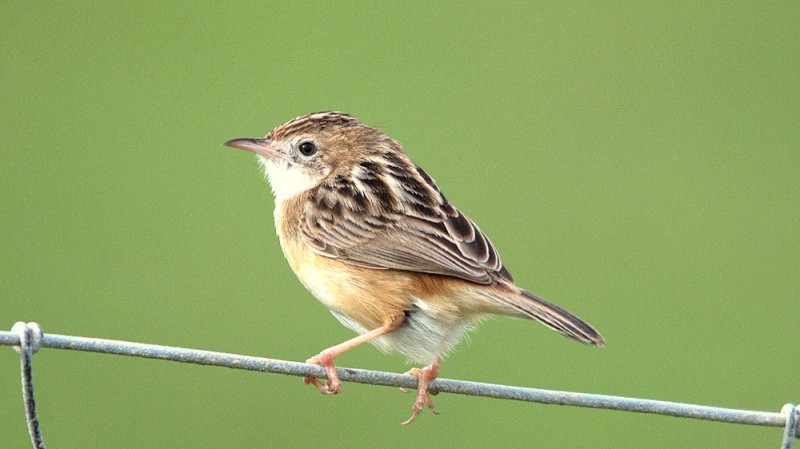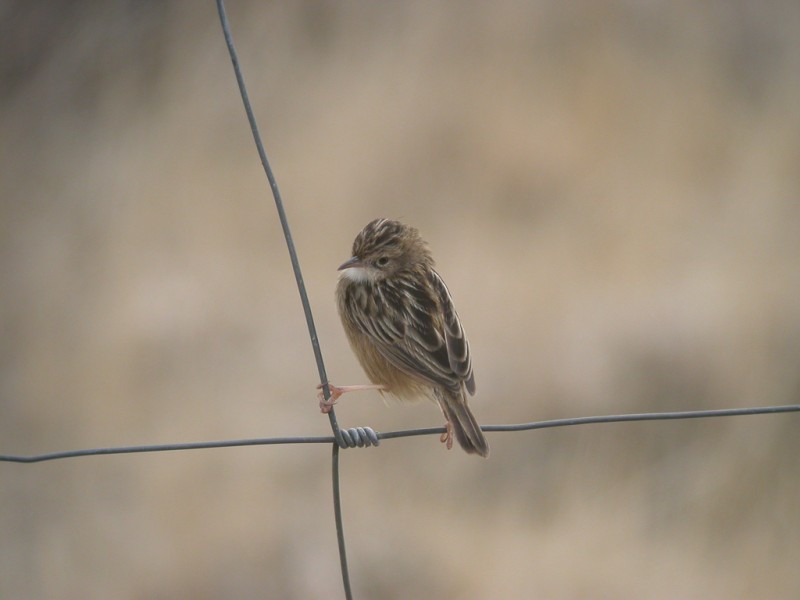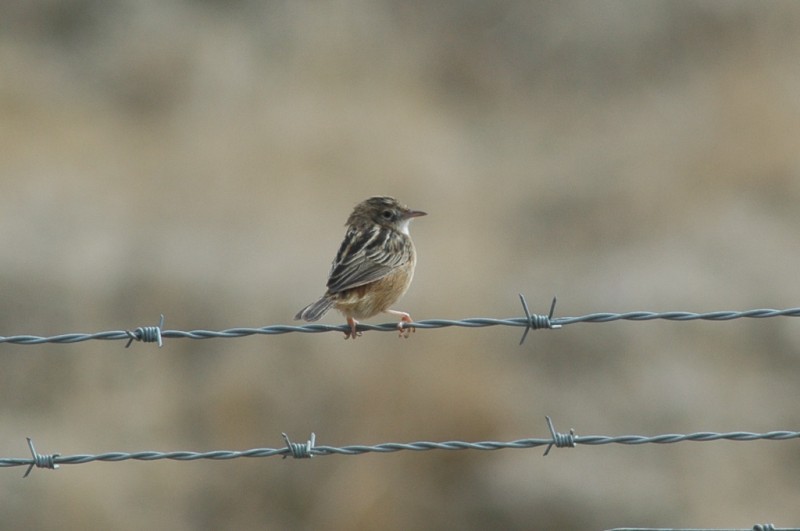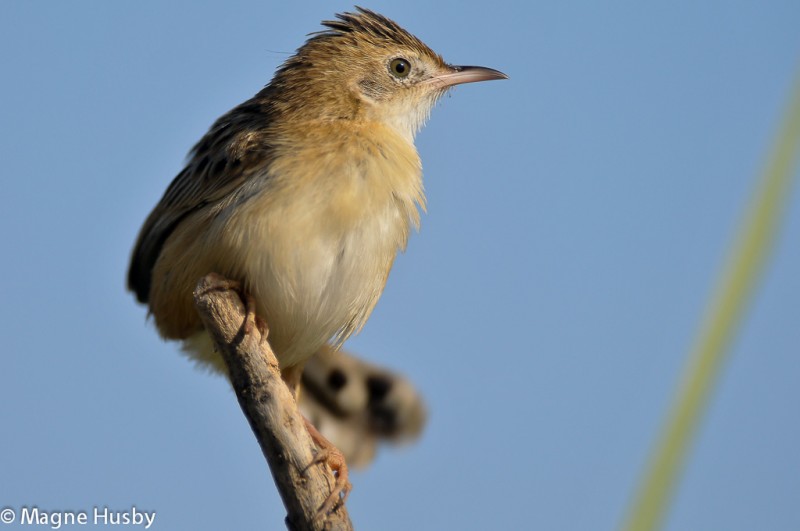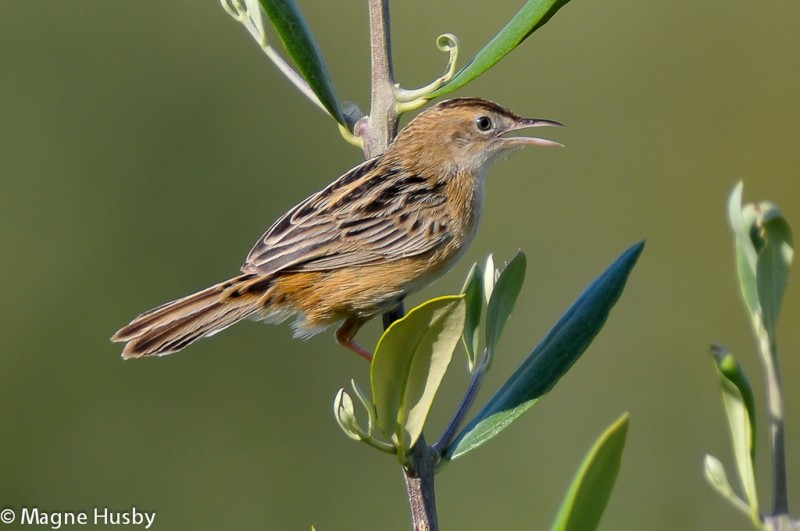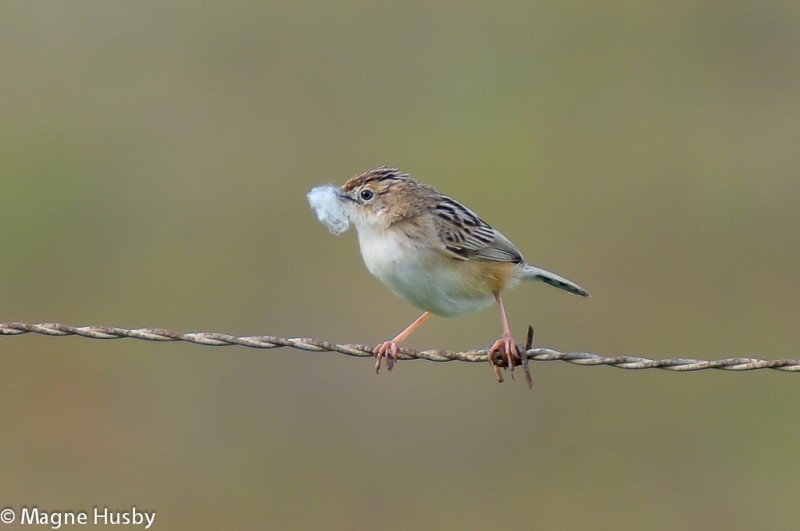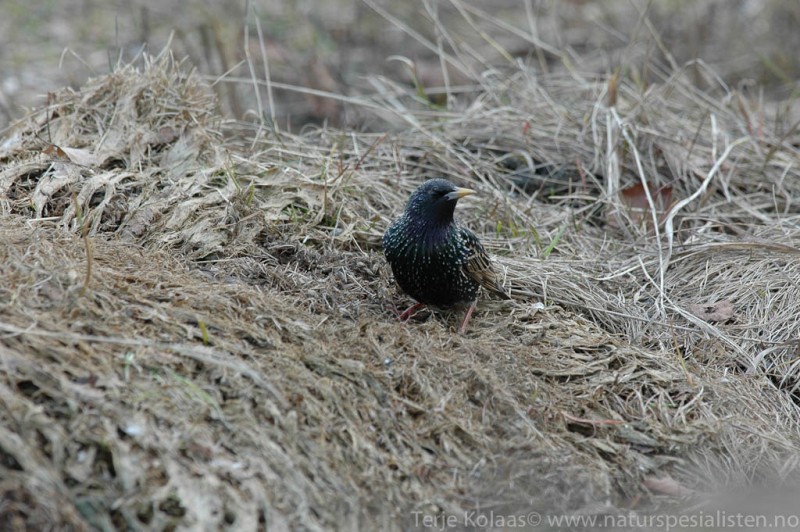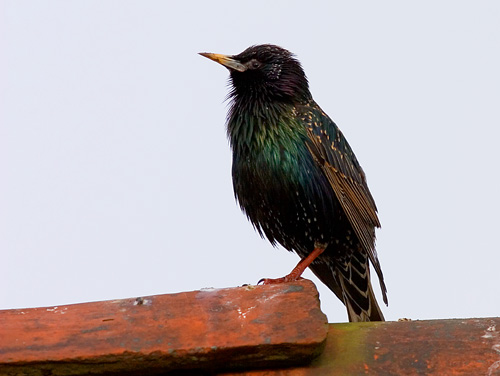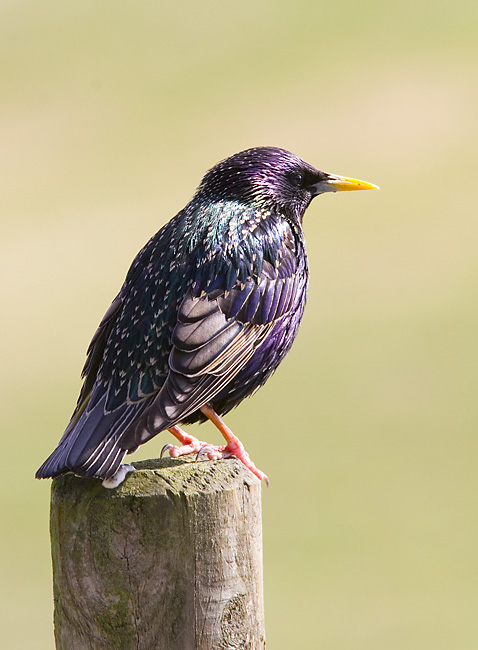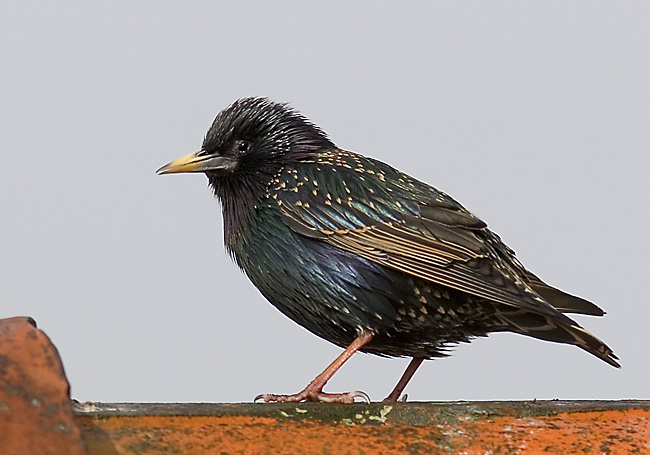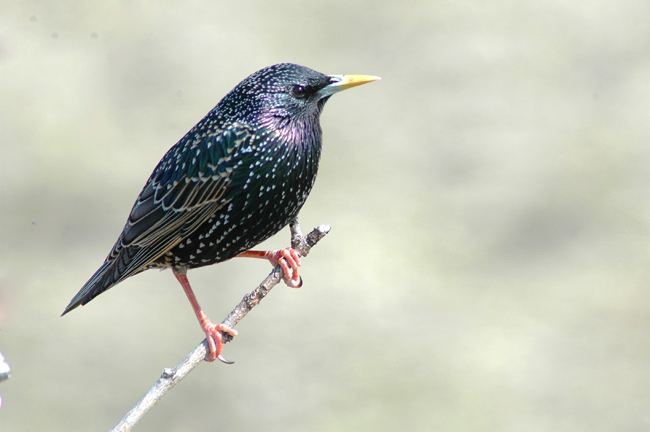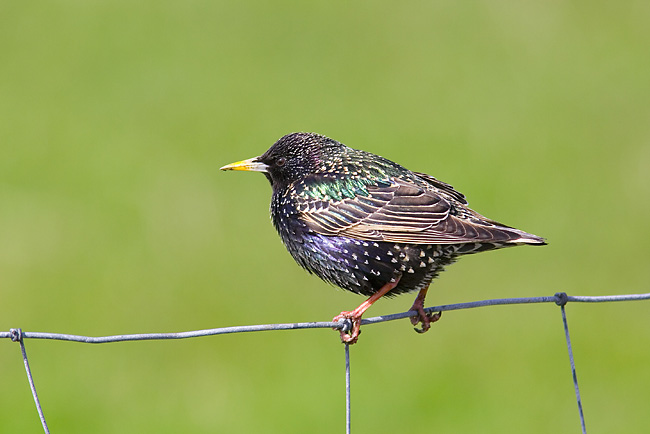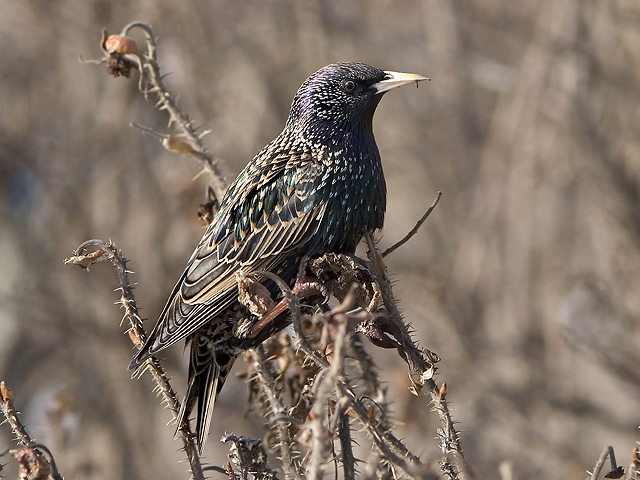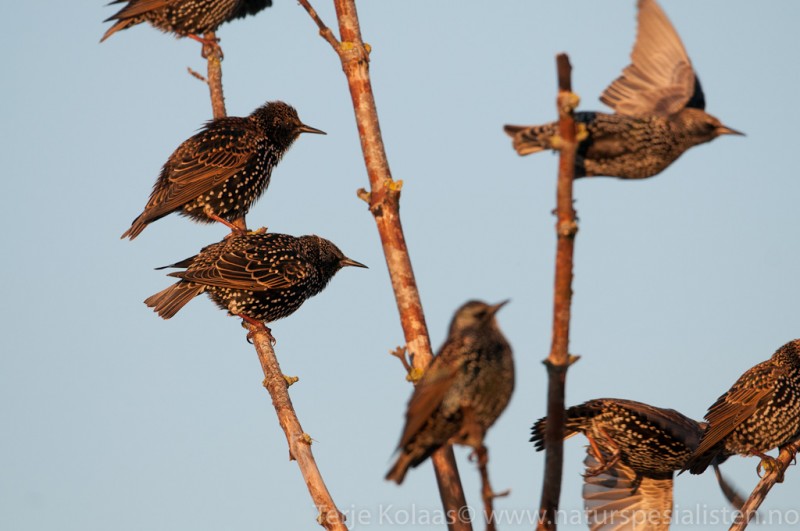Zitting Cisticola (Cisticola juncidis)
Starling (Sturnus vulgaris)
Small, short winged warbler. Similar to Scrub Warbler (Scotocerca inquieta) and Graceful Warbler (Prinia gracilis), but both wings and tail much shorter. Tail fan-shaped with black and white tips. Heavily streaked back, buff underparts and pale throat and vent. Pale area around eye. Flight diagnostic, with whirring wings and short, slightly spread, fan-like tail. Song flight even more distinct, with long undulations synchronised with voice.
Sound:Male song a diagnostic, monosyllabic, high-pitched "cist", repeated in an even rhythm about once every second, while in bounding song-flight or perched. Alarm call a short, clipping "witt", repeated in series.
Song and alarm:
Distribution:
Xeno-canto: map
Ecology:Birdlife ecology
Links:CC
Largely unmistakable where other species of starlings don't occur. Shiny, glossy black/dark-green plumage, speckled with white dots. Yellow bill, and pinkish legs. Juveniles brownish with light throat. As they age, winter plumage breaks through the juvenile feathers, creating large dark patches with white spots. These birds frequently puzzles new birders as they are commonly seen, but often not listed in bird guides. Starlings are easily recognized on the ground by their walking gait. Flight profile also characteristic with short sharp-cornered tail and short pointed wings. May be mistaken for a Waxwing when seen in silhouette.
Sound:Among the best of imitators. Mimics birds, animals and mechanical noises. Song a highly varied mix of falling whistles, bill-clappering and various masterful mimicry. Often makes several sounds at the same time. Other calls; a harsh "chaee" and a short sharp "tink".
Song:
Distribution:
Wikipedia: map (se also Xeno-canto below)
Ecology:Birdlife ecology
Links:
Observation.org Latest observations
Image search Flickr NB! May give other species
CC
 English
English Albanian
Albanian
 Armenian
Armenian
 Bulgarian
Bulgarian
 Catalan
Catalan
 Croatian
Croatian
 Czech
Czech
 Danish
Danish
 Dutch
Dutch
 Finnish
Finnish
 French
French
 Georgian
Georgian
 German
German
 Greek
Greek
 Hungarian
Hungarian
 Italian
Italian
 Latvian
Latvian
 Lithuanian
Lithuanian
 Macedonian
Macedonian
 Norwegian
Norwegian
 Polish
Polish
 Portuguese
Portuguese
 Romanian
Romanian
 Russian
Russian
 Sami : Lule sami
Sami : Lule sami
 Sami : North sami
Sami : North sami
 Sami : South sami
Sami : South sami
 Scientific names
Scientific names
 Serbian
Serbian
 Spanish
Spanish
 Swedish
Swedish
 Ukrainian
Ukrainian


